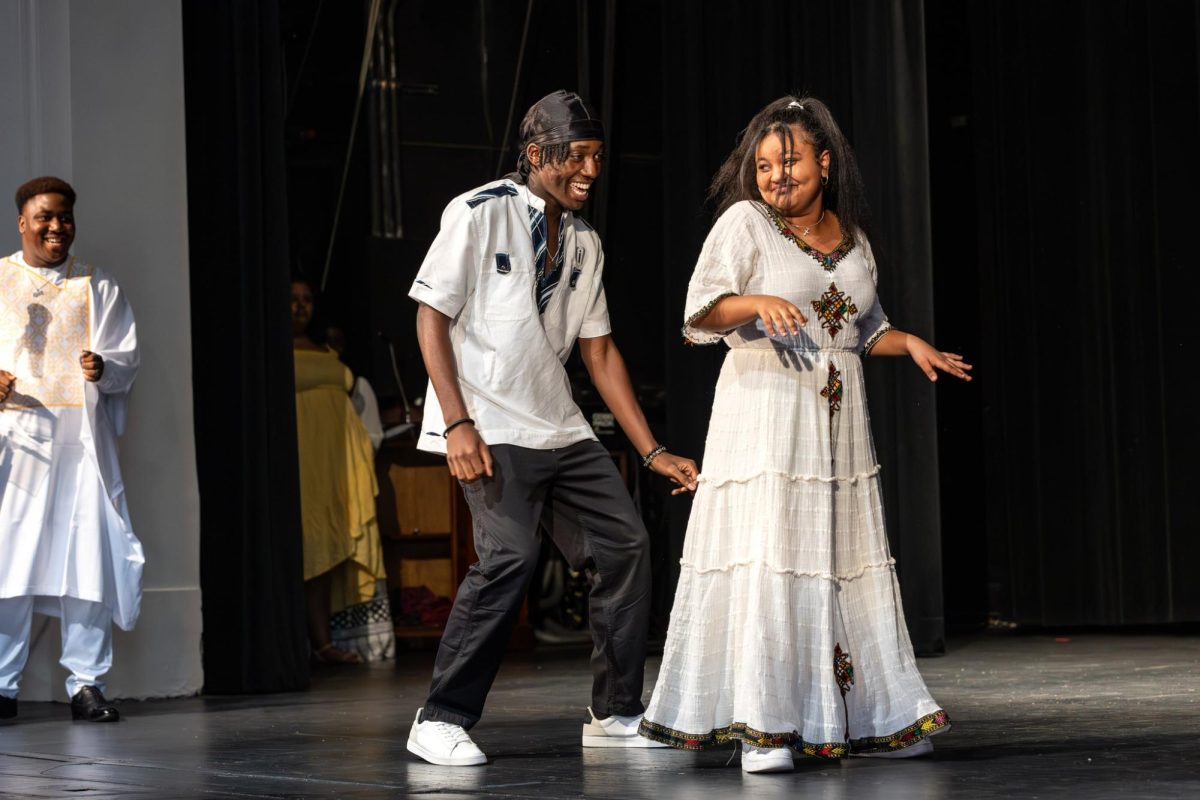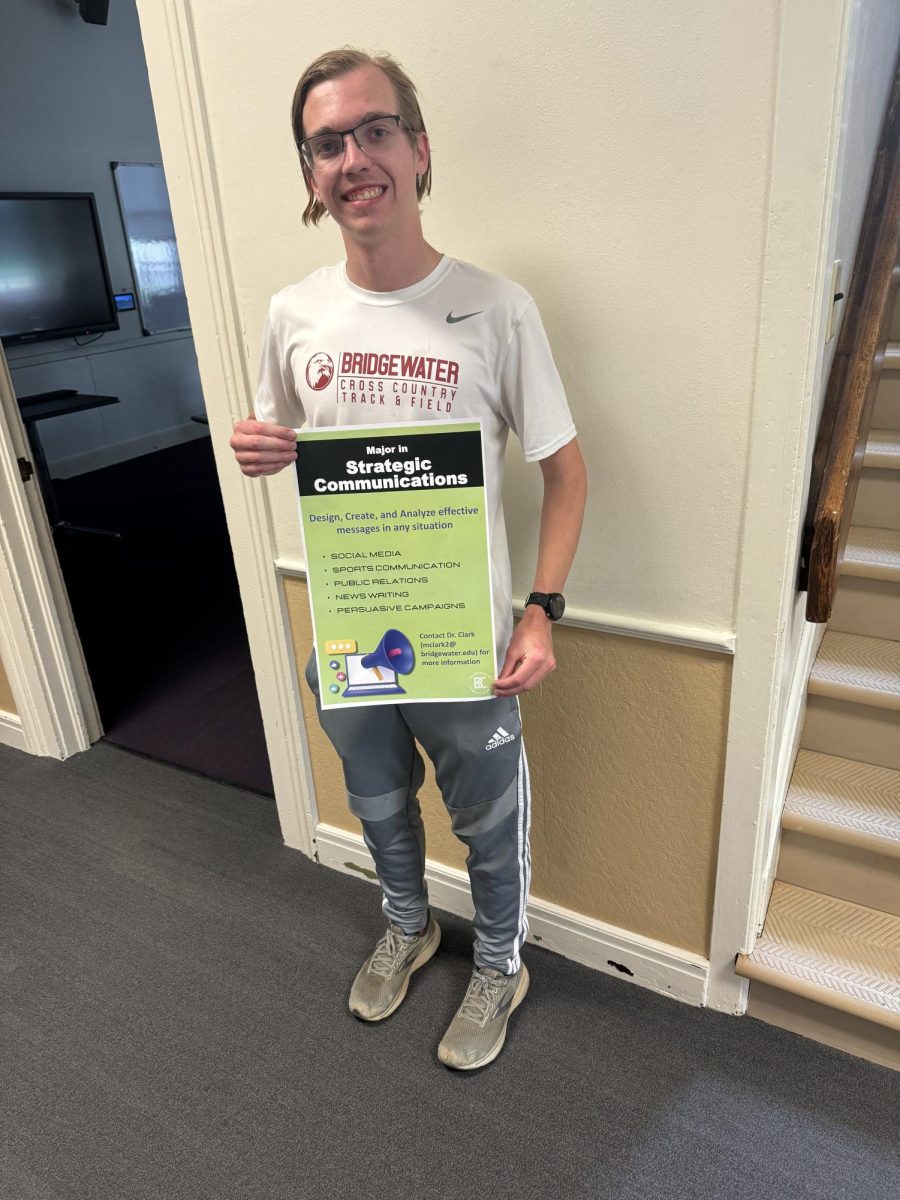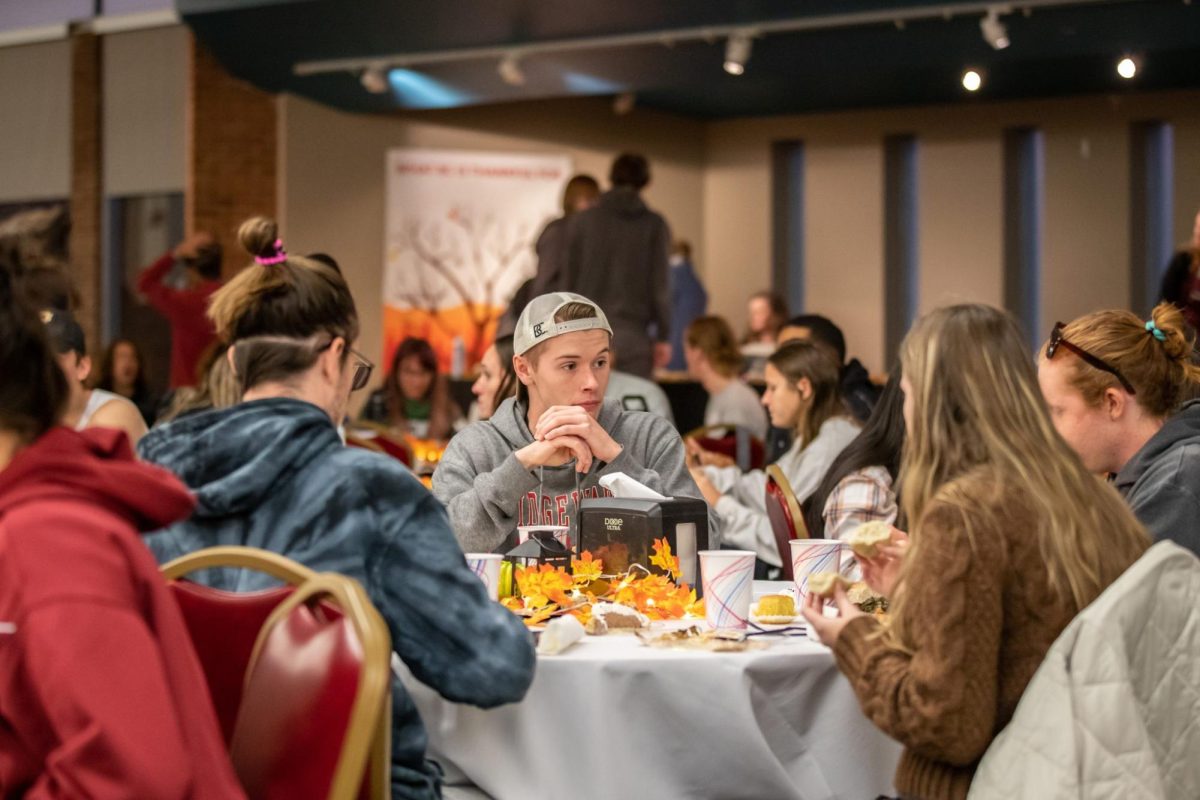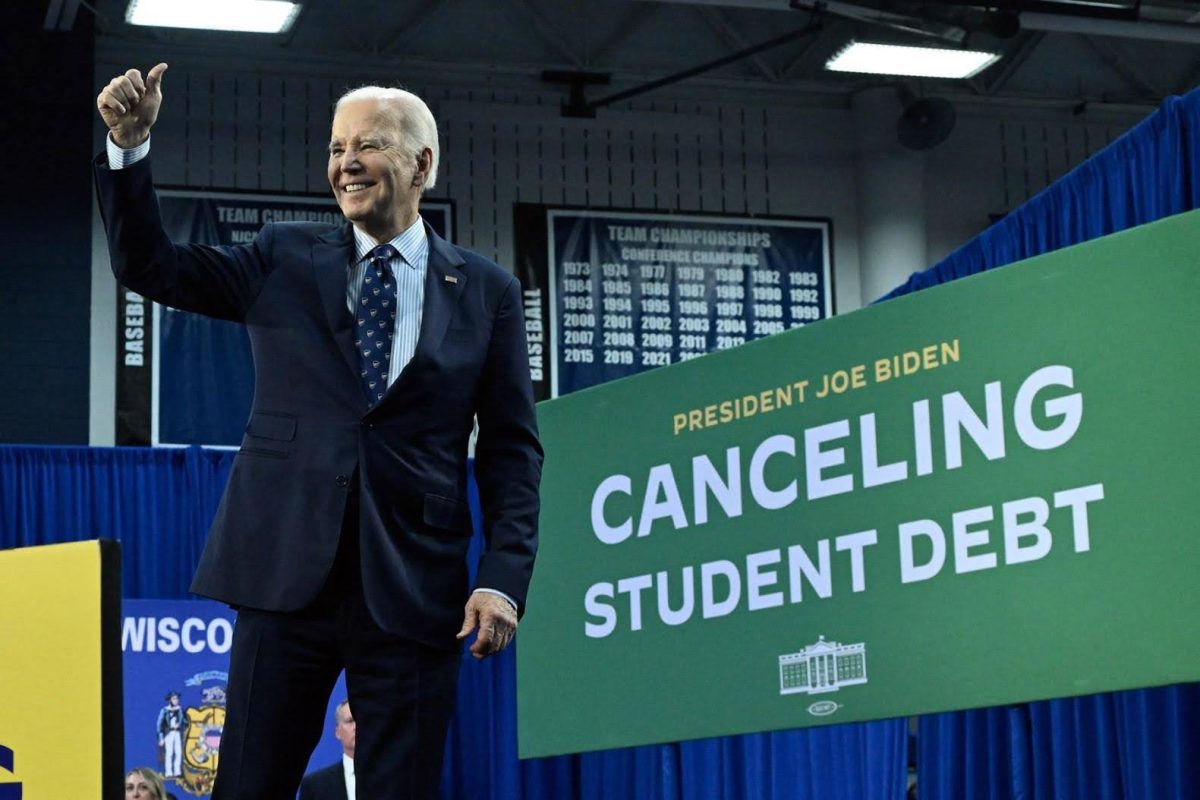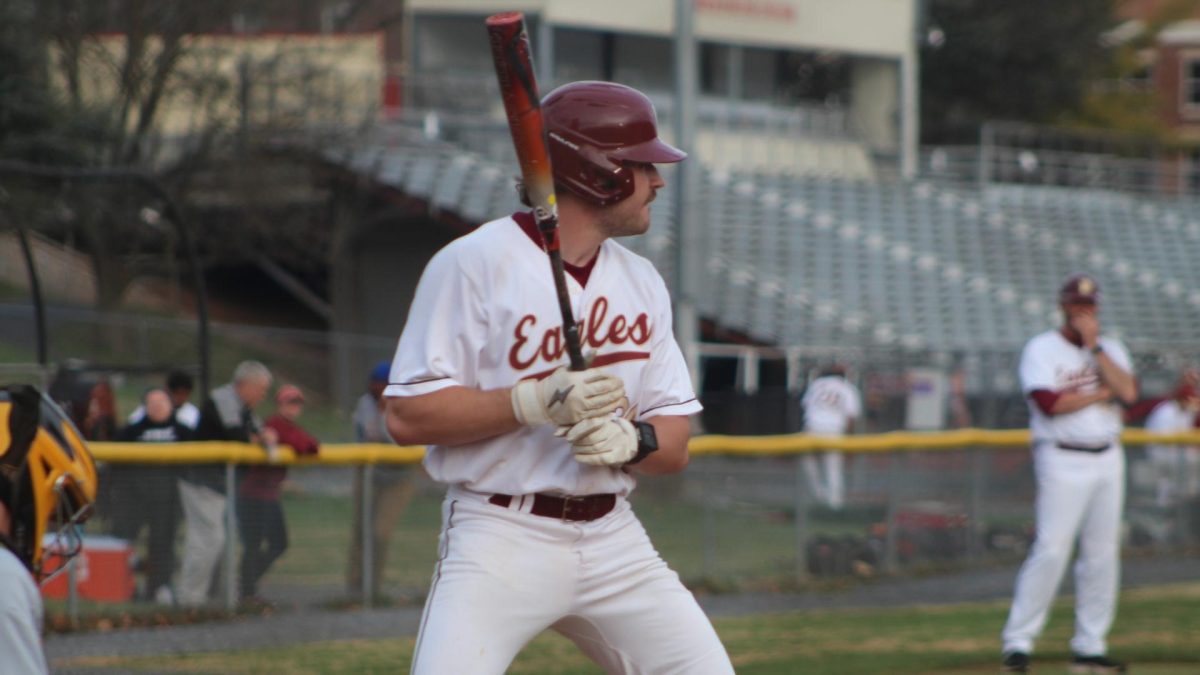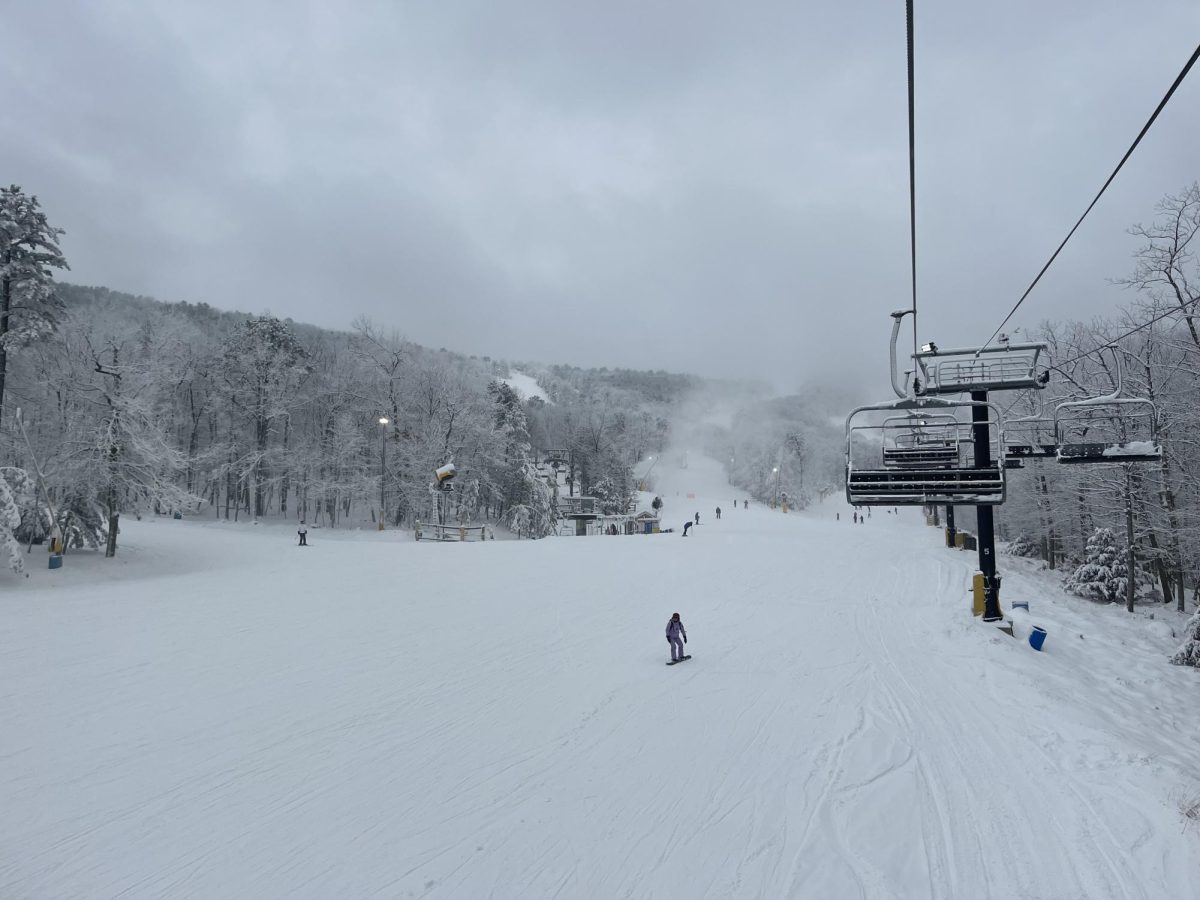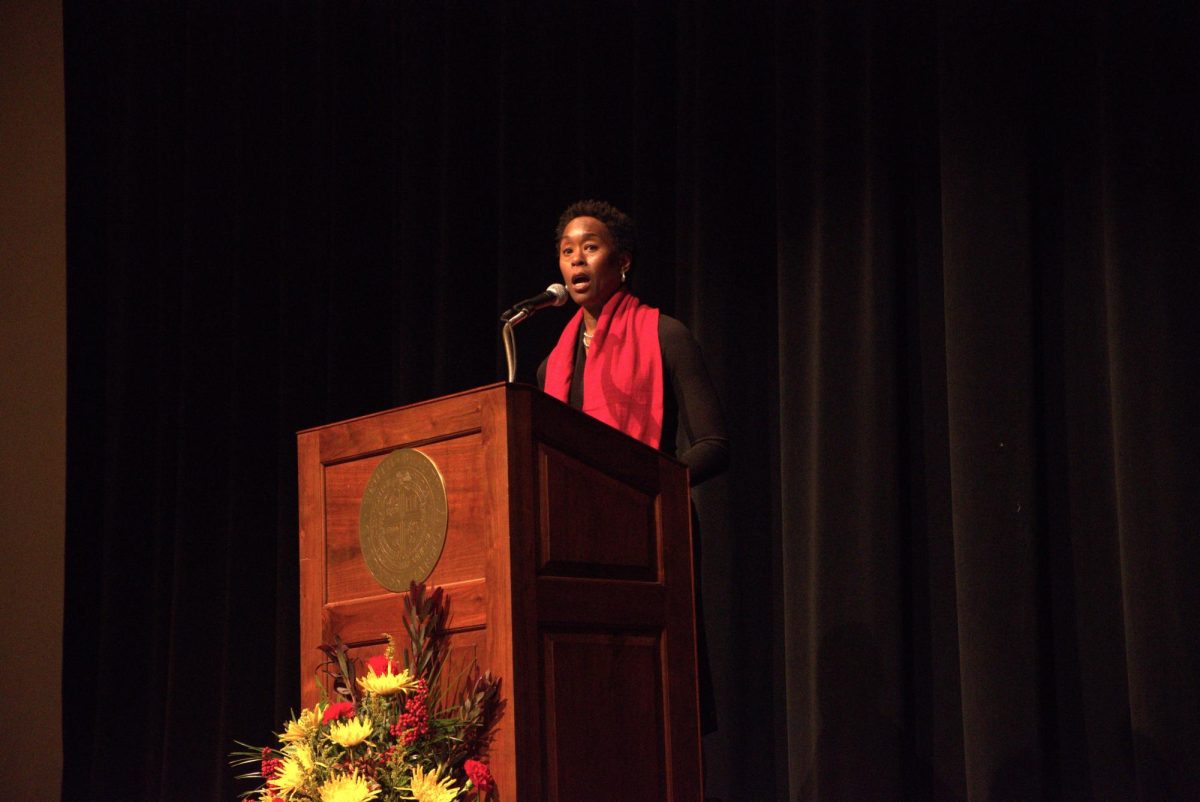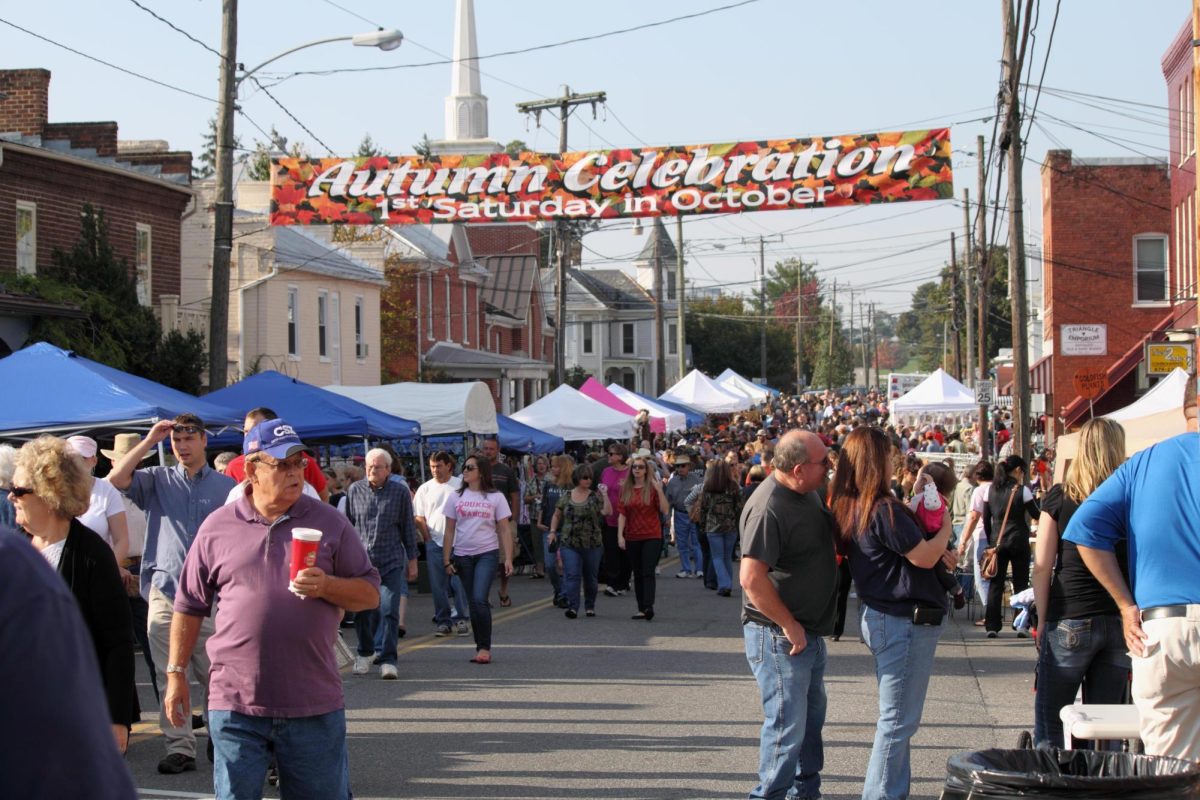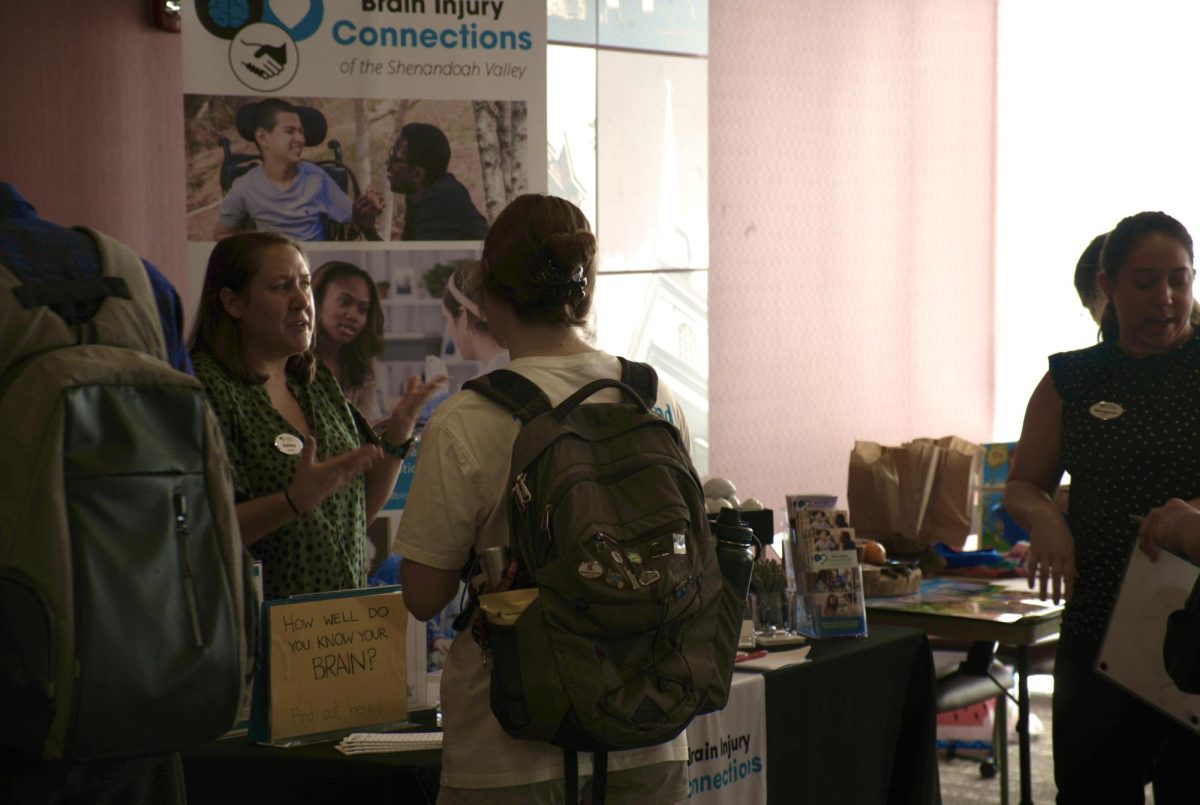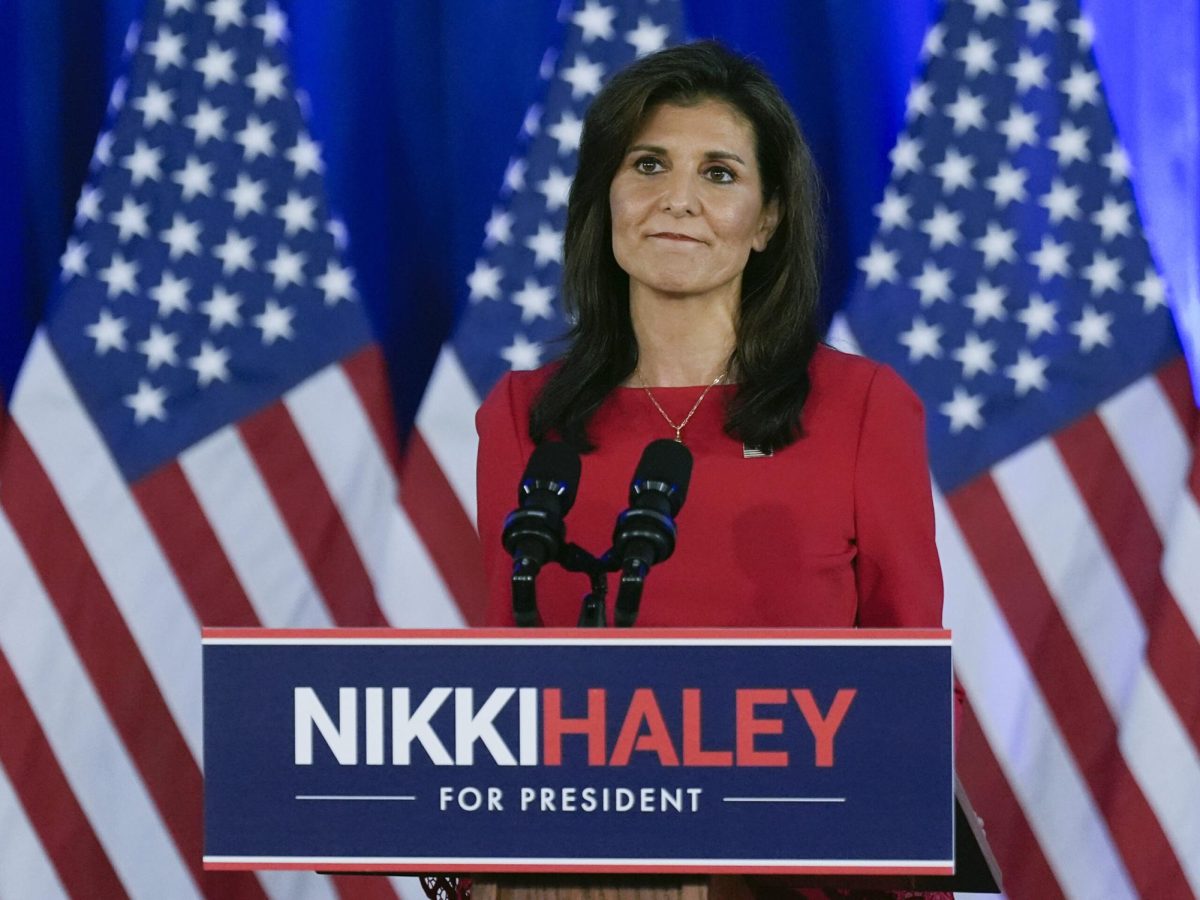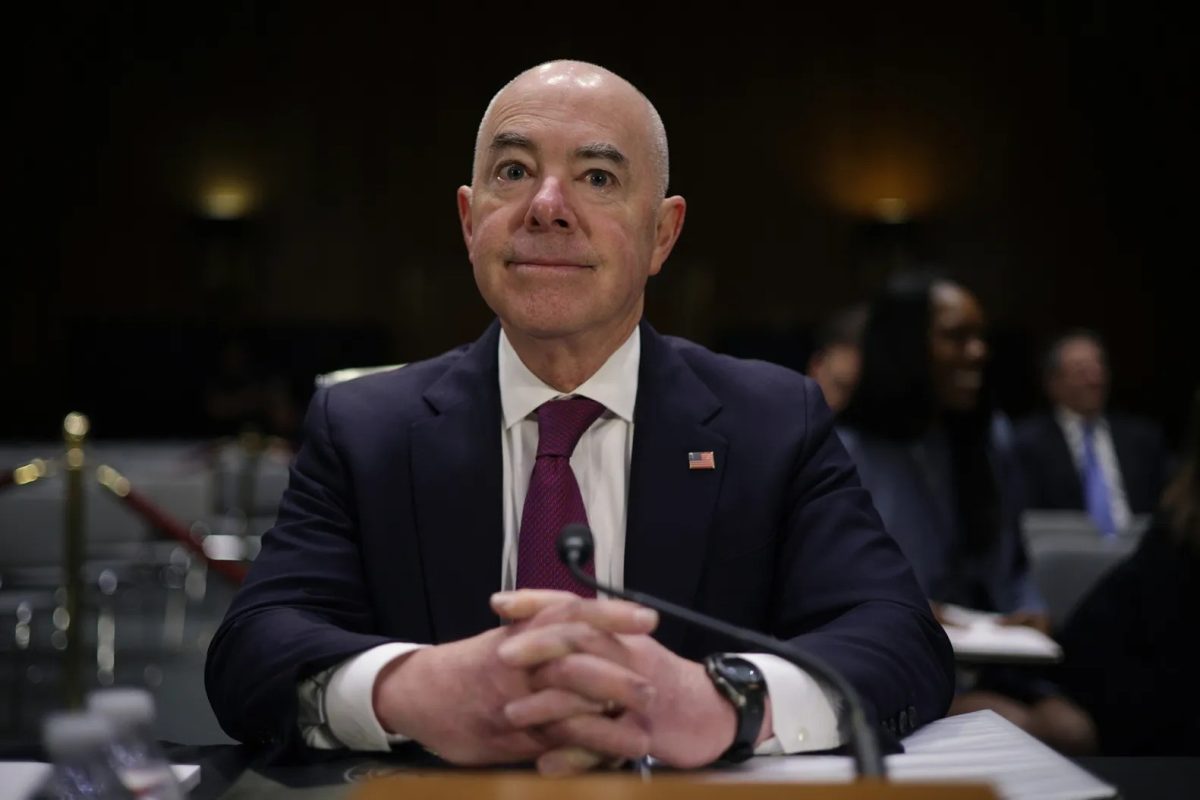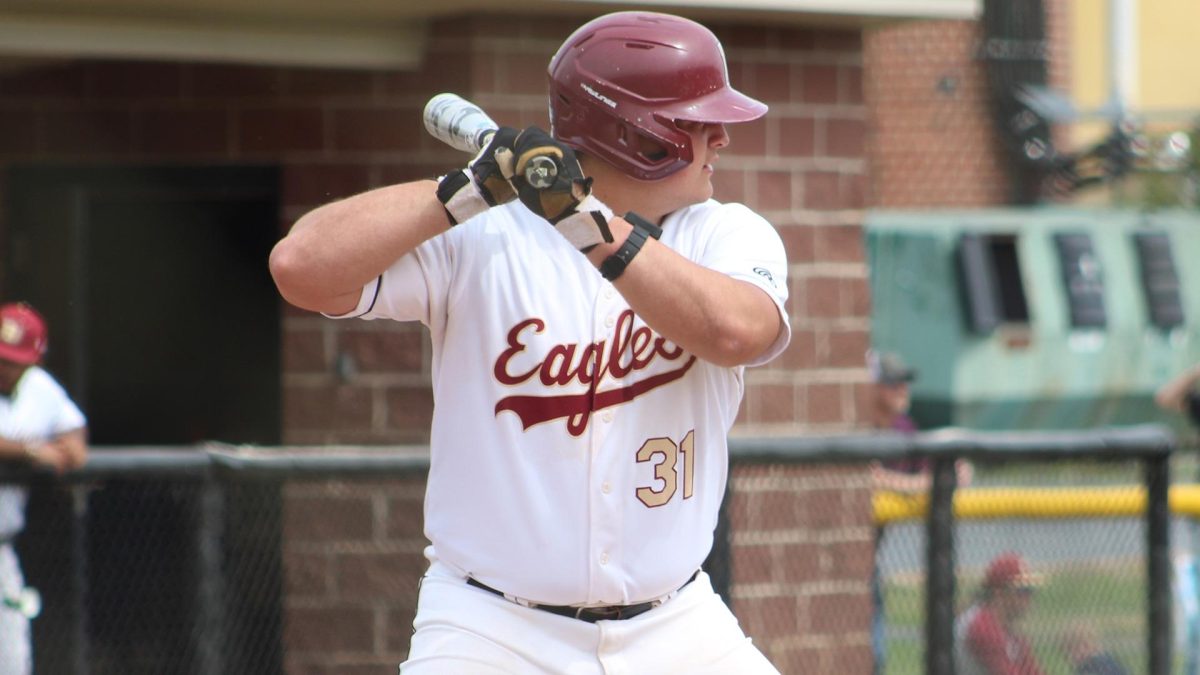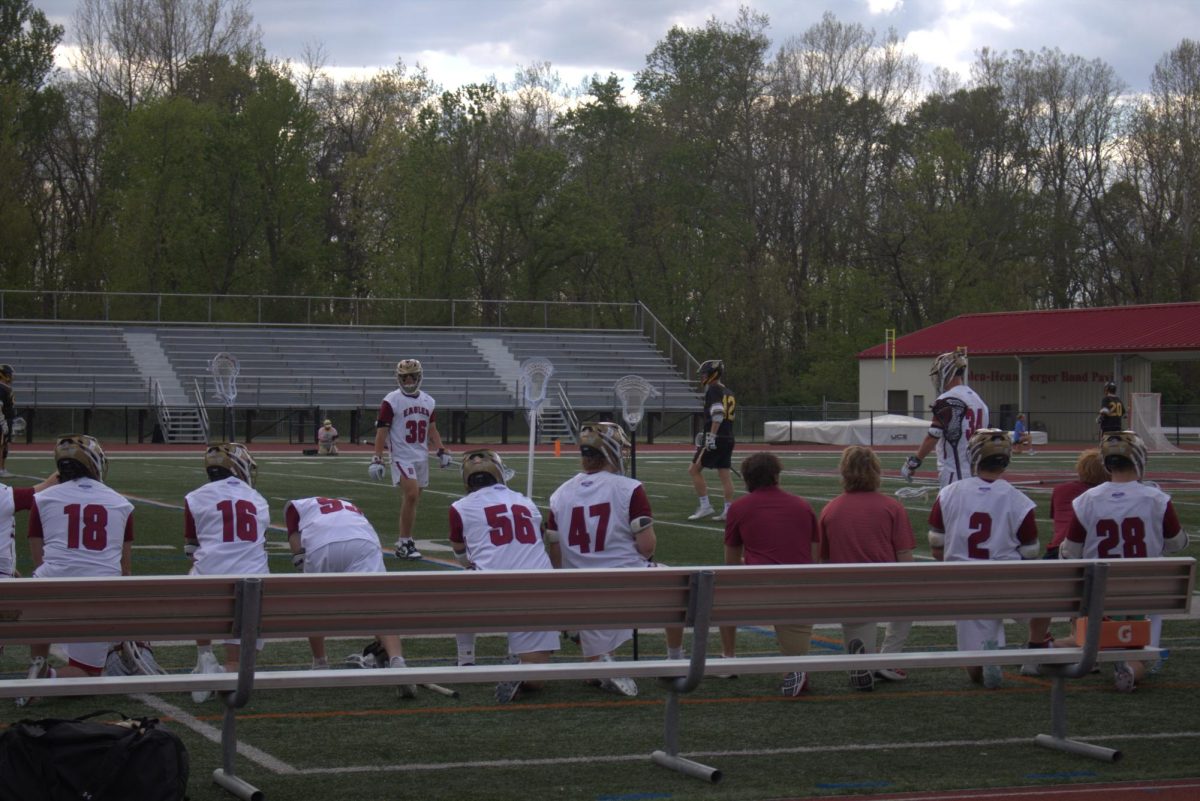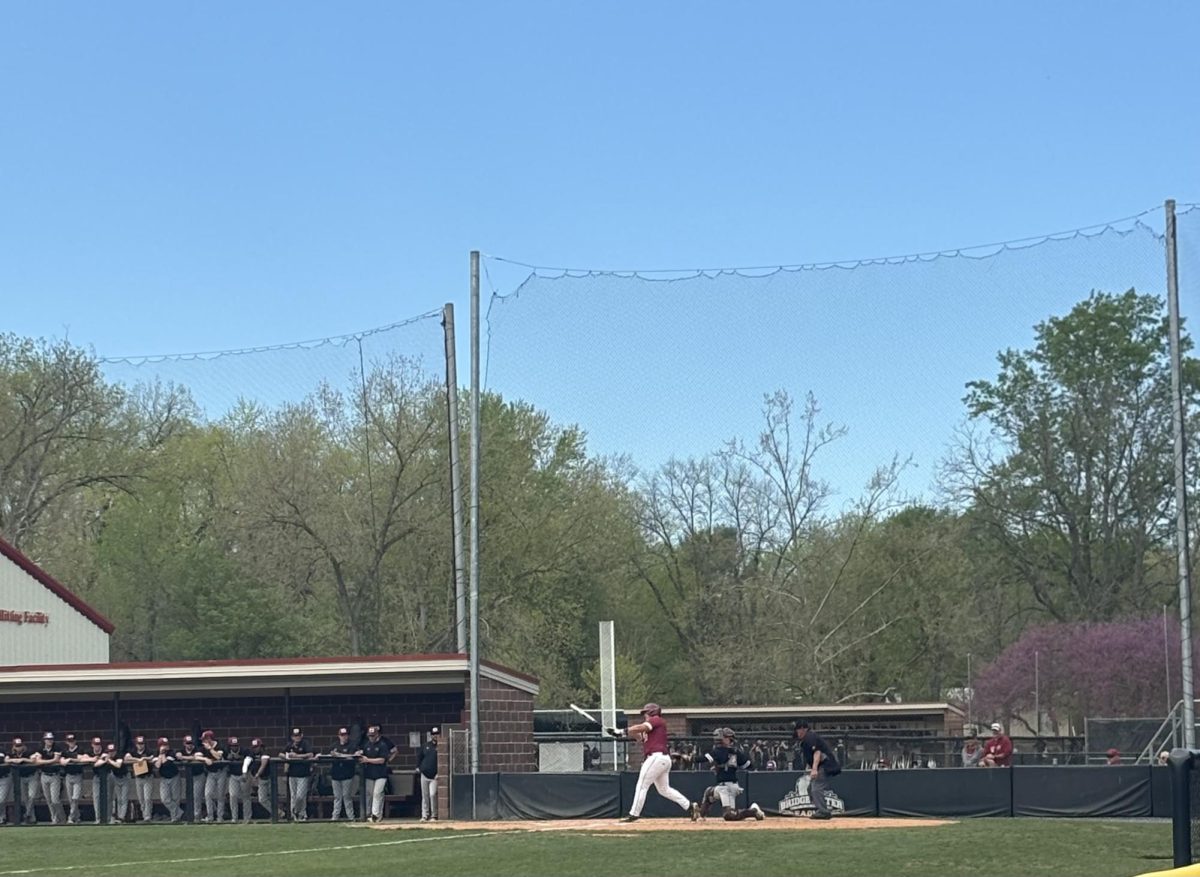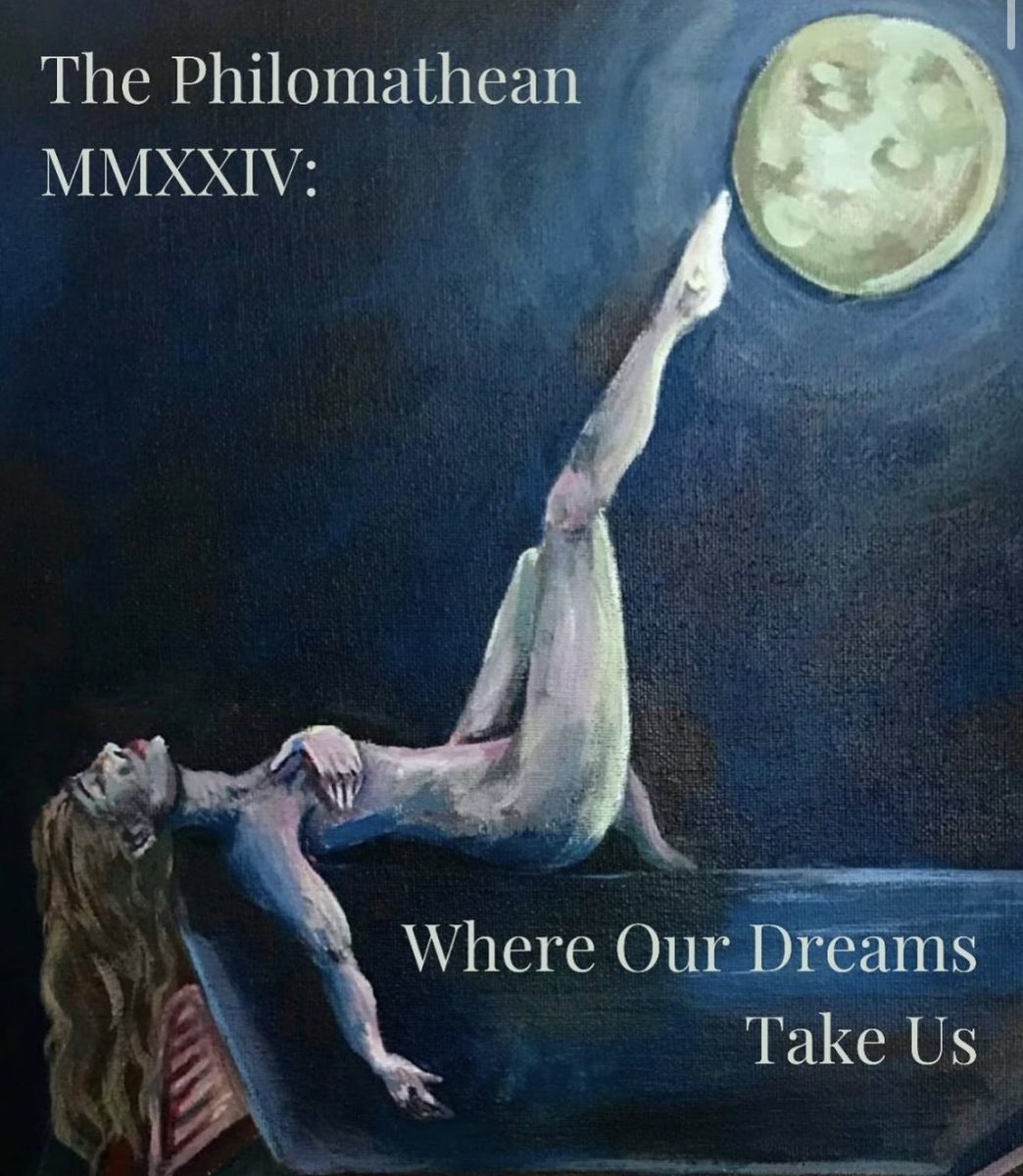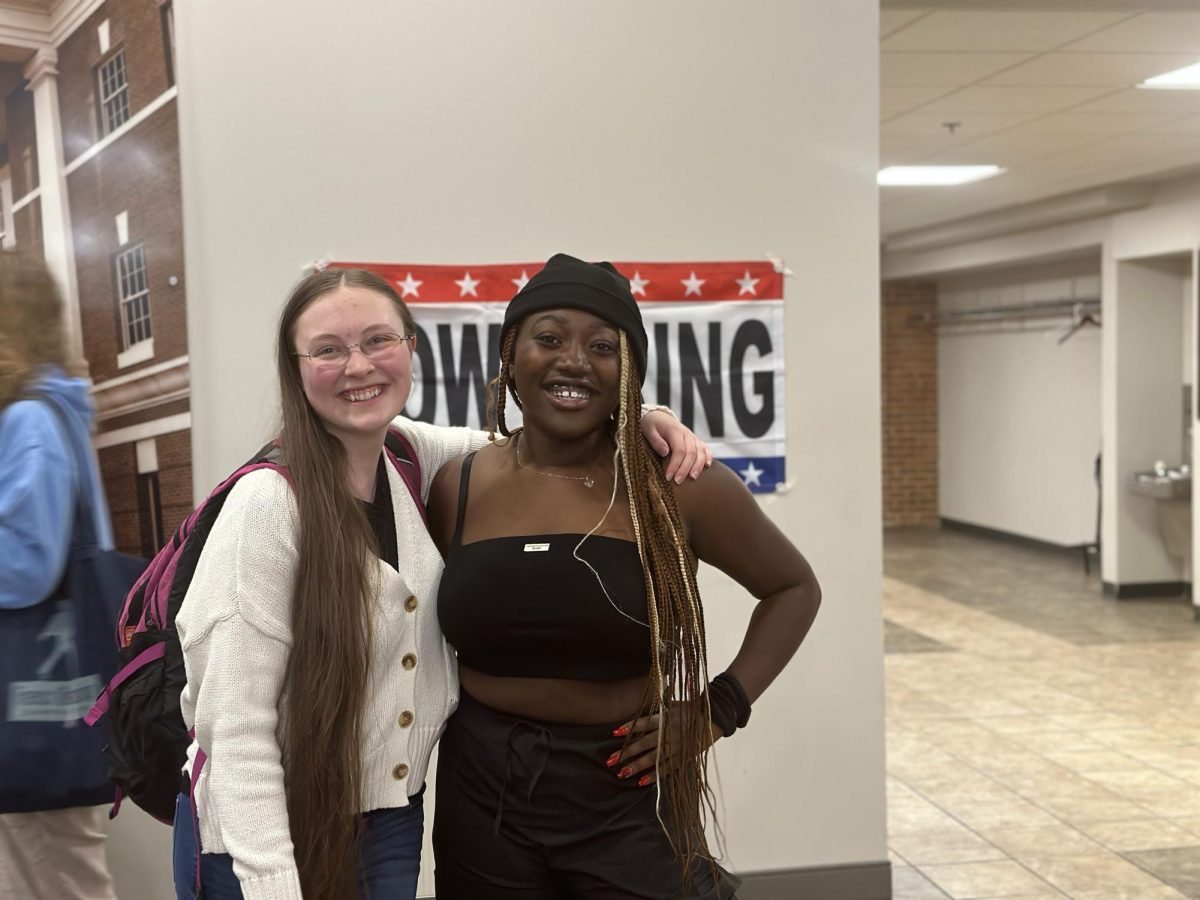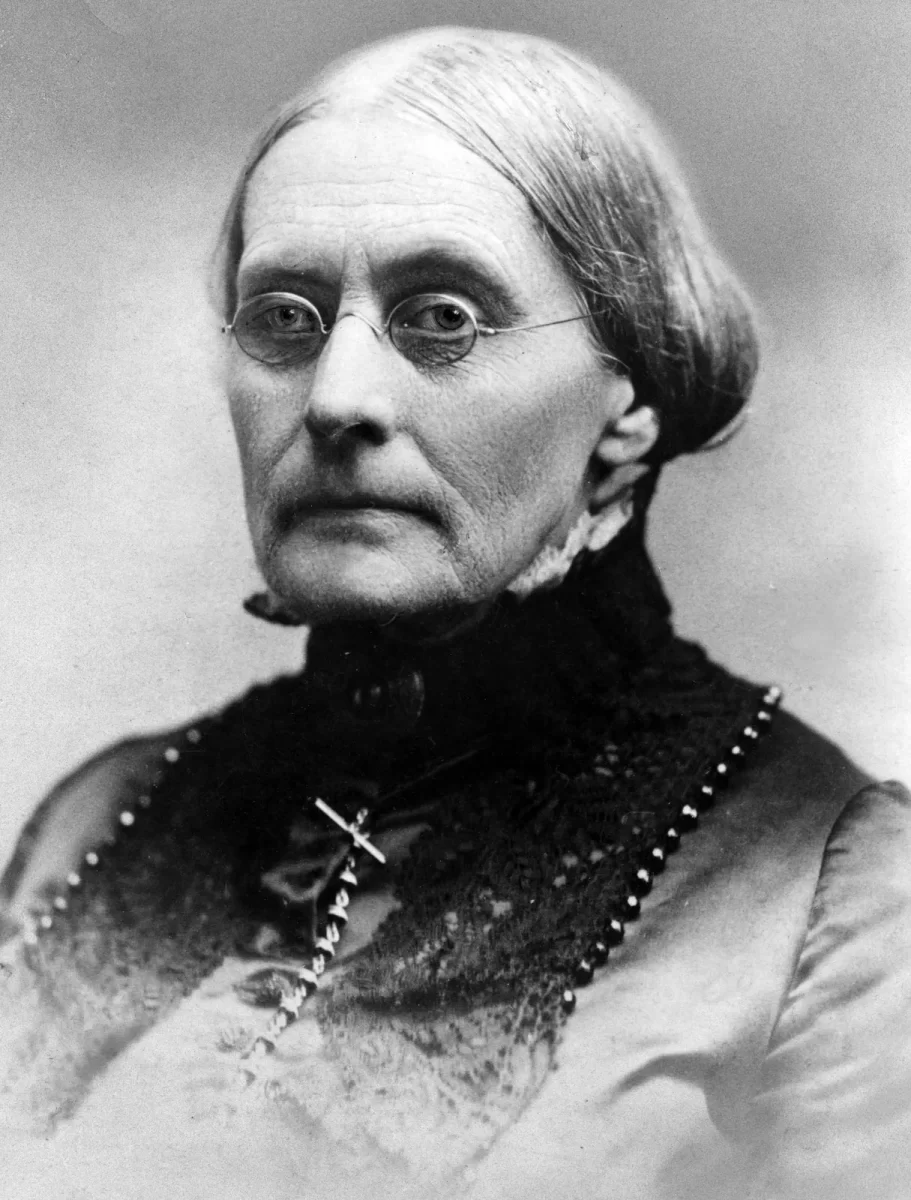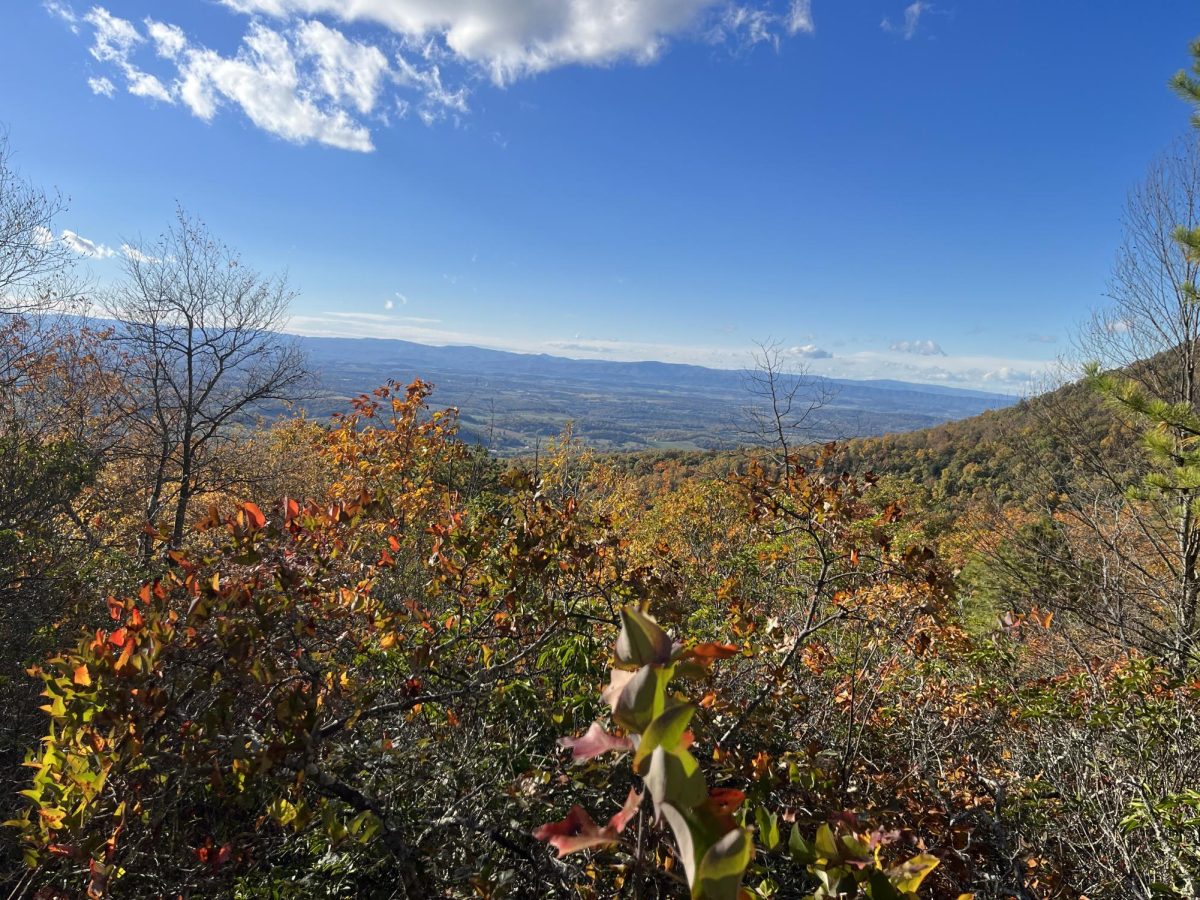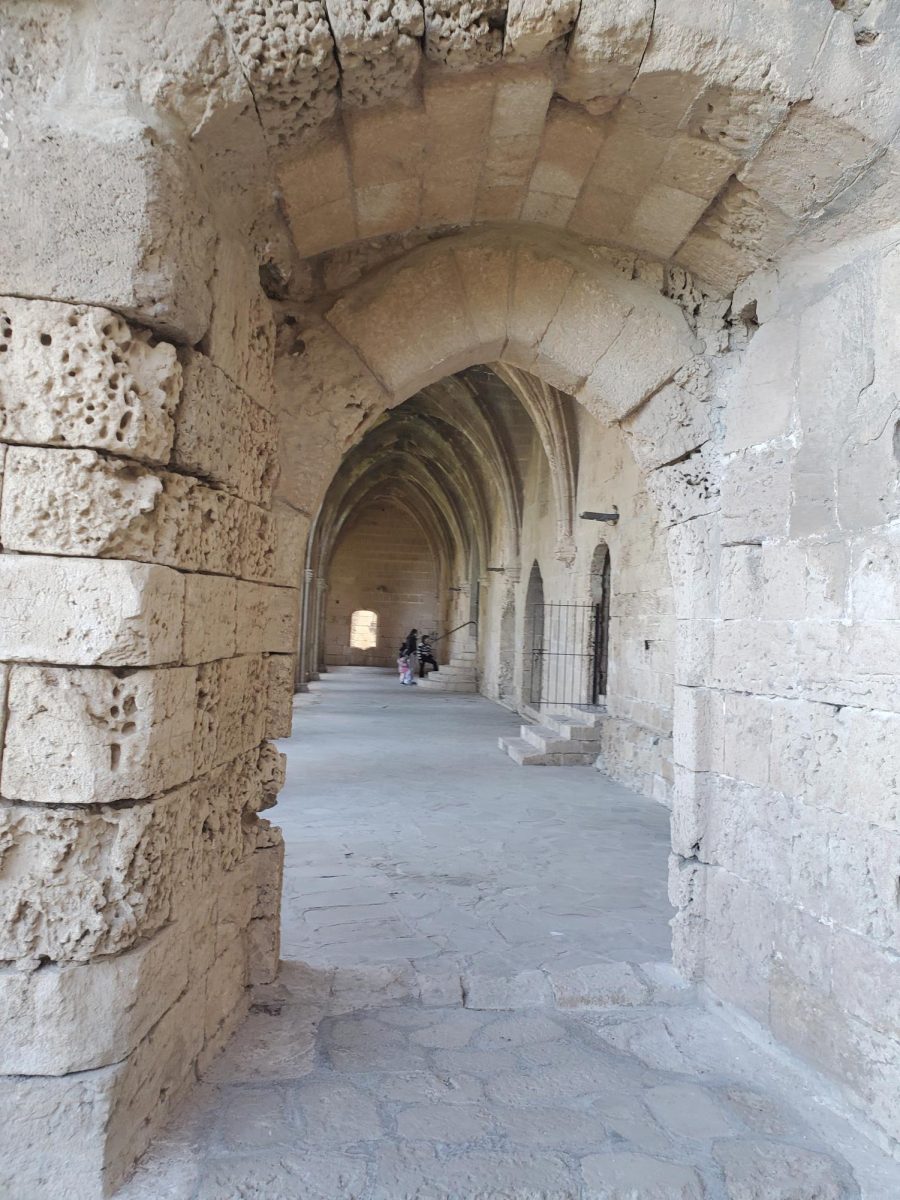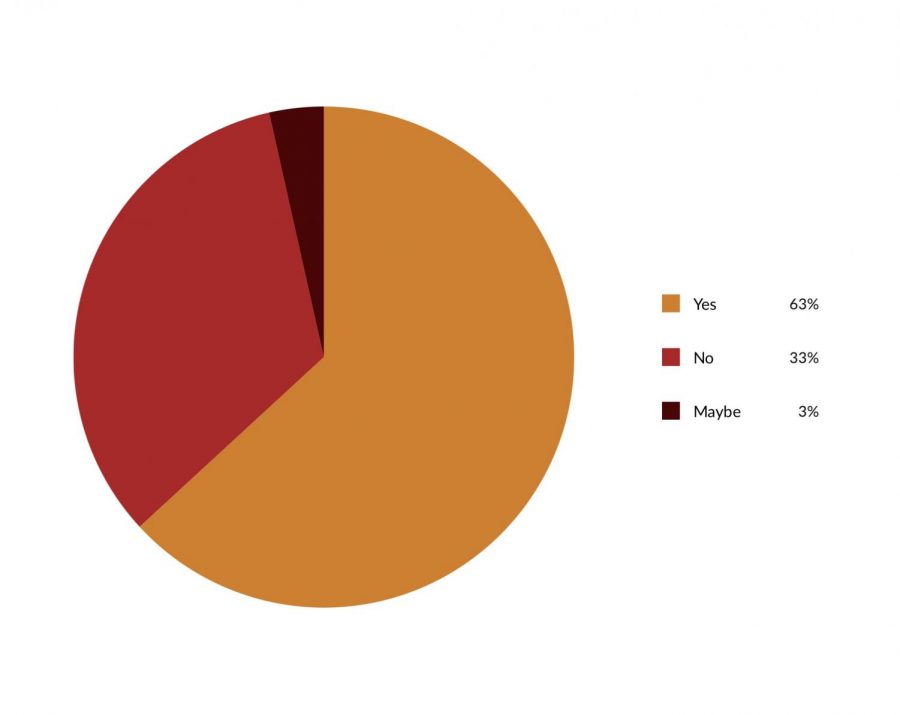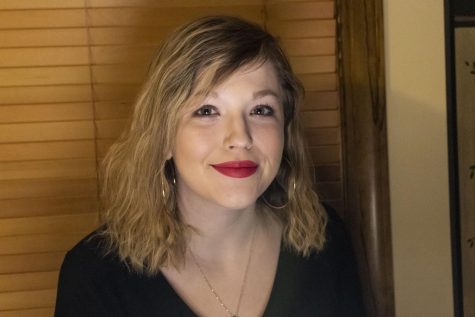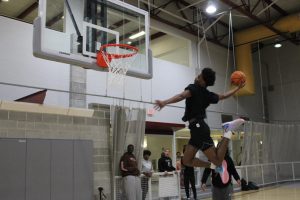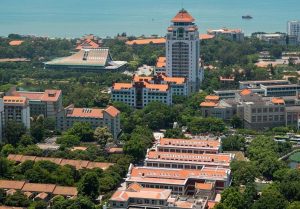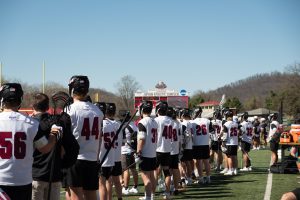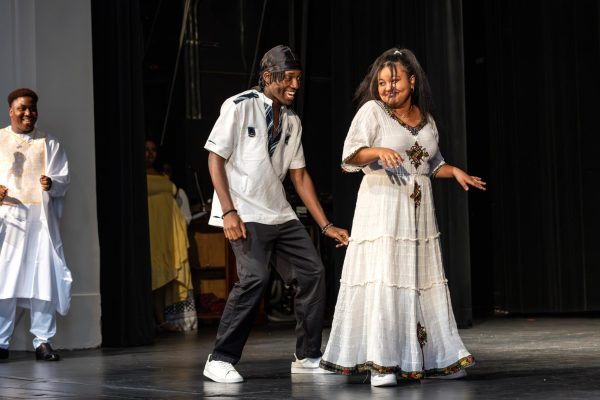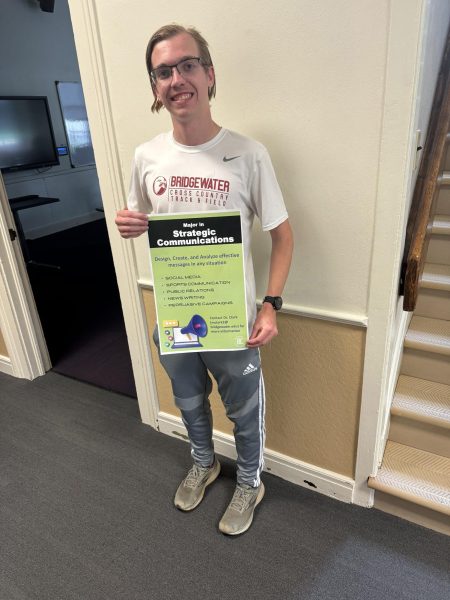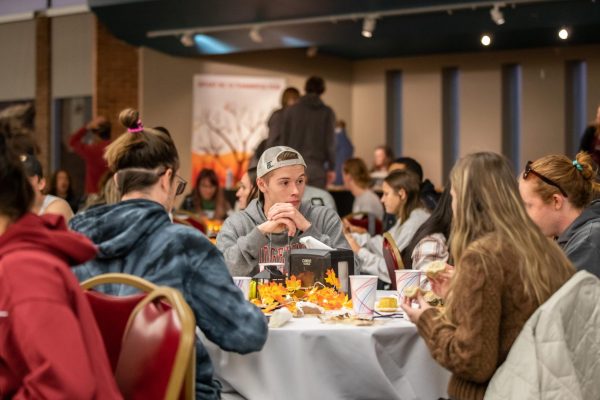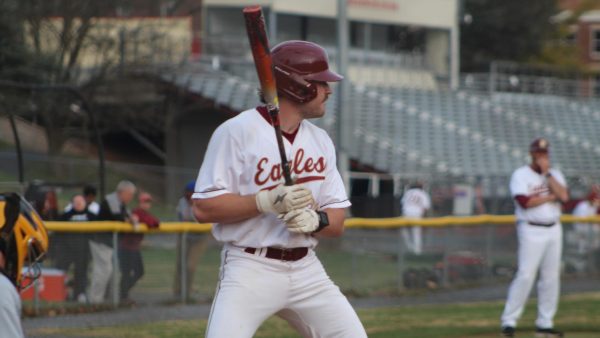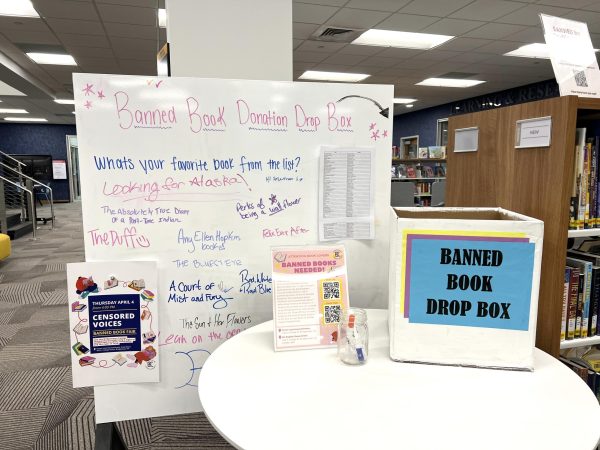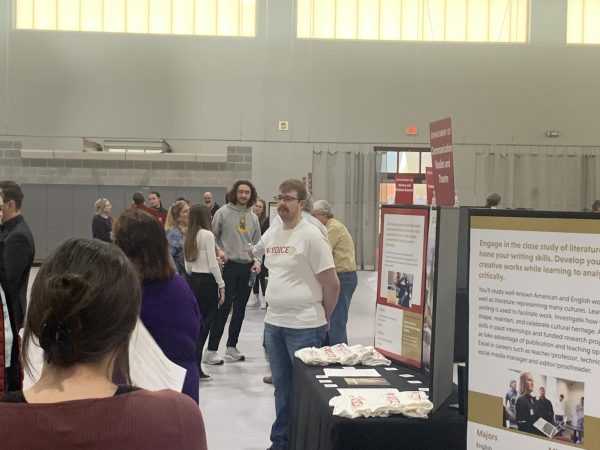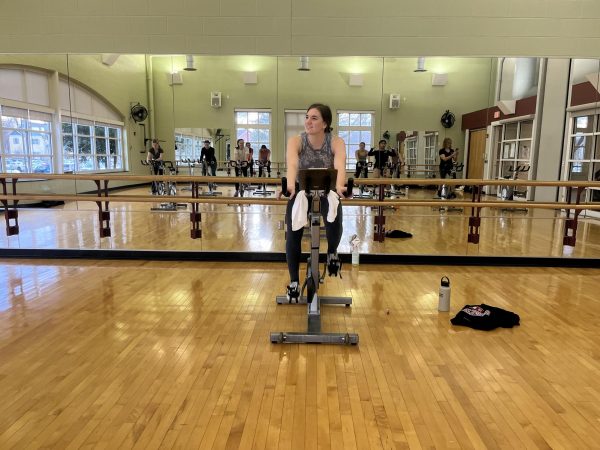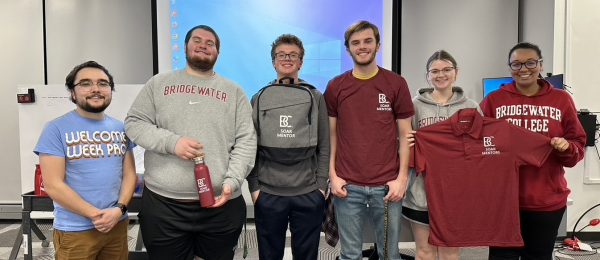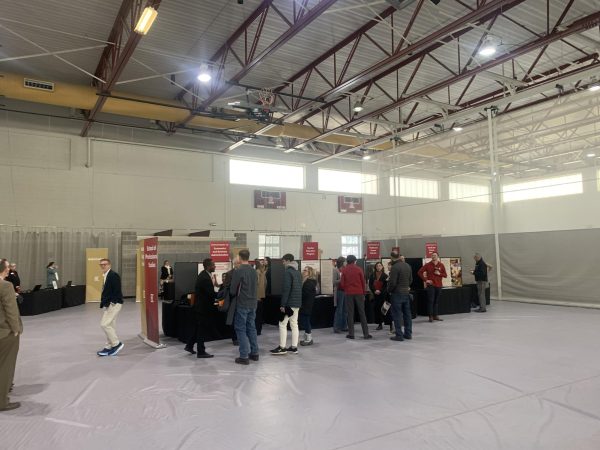COVID-19 Vaccination Opinions Across Campus
Bridgewater College Students and Faculty Give Opinions on Whether It’s a Good Idea or Not
A pie chart created to visually show the comparison of how many students and faculty would or would not receive a COVID-19 vaccination at Bridgewater College if one was released.
October 13, 2020
Bridgewater, Va. – Finding a cure for COVID-19 is a priority given the 37 million cases and 1 million deaths worldwide, according to the World Health Organization. The New York Times reports that 44 vaccines are being tested on humans across the world.
A random survey of 57 students and faculty members on Bridgewater College’s campus asked their opinions of a future COVID-19 vaccine, would they be among the first to get it, who should administer it and what they missed most from pre-COVID days.
The answers varied from person to person, with no clear consensus.
Out of the 57 participants, 36 answered that they would receive the vaccine if one was released. Most of the participants that answered yes, however, stated afterward that they would wait a few months to see possible side effects of the vaccination. Two participants answered they were undecided, as they felt it was a lot to consider.
The next question asked participants who they would trust to control the vaccine and the options were state government, federal government, private businesses or none at all. Of the 57 participants, 23 said that they would trust the state government, 22 would trust the federal government, four would trust private businesses and eight would trust none of the listed options.
The last question that was answered by all participants was how they felt the stress levels of the season are currently. The 57 participants answered as follows: 26 felt that stress was increasing, 11 felt that it was decreasing and 20 felt that it was staying about the same.
Sophomore Adam Lorfink stated that he felt the pandemic stress is calming down when it should not be. Junior David Oliveras worries that the stress is going to get worse in the winter time as immune systems during the winter become weaker.
A study by Del-ImmuneV and Yale shows that cold weather can cause a slower immune response and keep immune cells from being able to protect the body as quickly. This is one reason why the flu is so prevalent during winter months.
CareSpot states that the combination of cold weather, dry heat and holiday stresses can combine to make the immune system work slower. The website also lists tips on how to strengthen your immune system during the winter.
When faculty and students were asked what they missed from pre-pandemic life, most of the participants answered that they missed large groups or just being with their friends. A close second in terms of frequency of responses was not having to wear a mask. A few participants mentioned that they also miss hugs, sports, freedom and making friends openly.
A similar national study was conducted by Harris Insights and Analytics, LLC in Sept. 2020. This poll had similar results. For example, most responded that they missed interaction with others and had a very similar result with vaccination control.Their poll stated that 34% would trust the state government, 30% would trust the federal government, 13% would trust private businesses and 23% would trust none of them.
As the race to find a vaccine heats up, some companies are getting closer to completing their trial phases as people are volunteering to receive it, and according to BBC News, we could have one available by mid-2021.

